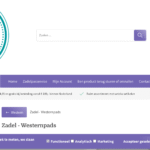Winsie Scam Review: A Deep Dive
Cryptocurrency fraud remains one of the fastest-growing threats in the digital world. Among the numerous platforms flagged by users and consumer-watch groups, Winsie (operating at winsie.com) frequently surfaces in discussions of high-risk and potentially fraudulent crypto services. While Winsie may present itself as a legitimate investment or trading platform, a closer look reveals patterns consistent with many known cryptocurrency scams. Below, we examine the reported issues, risk signals, and user experiences that paint a troubling picture of Winsie.
What Is Winsie Supposedly Offering?
Winsie markets itself as a cryptocurrency trading or investment platform. It claims to provide users with opportunities to trade digital assets and potentially generate significant returns through its services. The marketing is polished and can appear convincing, especially to newcomers — but significant doubts emerge when digging past the surface.
Recurring Themes in User Complaints
One of the most powerful indicators that something may be deeply wrong with Winsie comes from user reviews, particularly on review platforms where dozens of people have shared negative experiences. A Trustpilot profile for winsie.com shows a very low overall rating. Many users allege losing money, being blocked from withdrawing funds, and being pressured into making ever-larger deposits.
Several reviews detail a similar pattern:
-
Romance / Dating Approach: Multiple users report being introduced to Winsie via individuals they met on dating apps. According to these accounts, someone (often described as a “girl from a dating app”) would talk about cryptocurrency, build rapport, and then steer the conversation toward investing on Winsie. Once the investment begins, everything seems normal — at least for a while.
-
Initial Payouts, Then Restricted Withdrawals: According to users, Winsie appears to allow small early withdrawals, presumably to build trust. But as deposits grow, withdrawal requests reportedly become difficult. Some users said withdrawals get “stuck” or that Winsie demands additional requirements, such as “audit fees” or other “tax-like” payments, to process larger withdrawals.
-
Threats of Money Laundering Accusations: Alarmingly, some users claim that when they expressed difficulty withdrawing, Winsie representatives threatened to accuse them of money laundering if they did not comply with additional financial demands. Such tactics — especially around vague “audit” fees and regulatory compliance — are common in high-risk investment frauds.
-
Poor Support and Communication: Many reviews state that attempting to contact Winsie after investing becomes a challenge. Once a user’s balance grows or withdrawal is requested, communication allegedly becomes terse, delayed, or outright blocked.
Regulatory & Legitimacy Concerns
Beyond user reviews, there are deeper structural concerns about Winsie’s legitimacy.
-
Unregistered or Dubious Licensing: According to some regulatory-watch commentary, Winsie (or “Winsie Global”) is not registered to provide regulated financial services in certain jurisdictions. This absence of proper licensing raises serious trust issues — a legitimate crypto investment firm typically discloses its regulatory status clearly.
-
Risky Business Model: The combination of high returns, romance-style recruitment, and repeated demands for more funds aligns with classic advance-fee schemes or Ponzi-like structures, in which early “gains” are used to lure in more capital from newer participants.
-
Opaque Corporate Information: There is limited publicly verifiable information about who exactly runs Winsie, where they are based, or how they operate. Without this transparency, it’s extremely difficult for users to verify the legitimacy of the business’s claims and risk profile.
Why These Red Flags Should Worry Investors
Individually, one or two of these issues could be dismissed as poor customer service or bad faith individuals. But together, they form a pattern that strongly resembles known crypto scam schemes. This is concerning for several reasons:
-
Psychological Manipulation: The use of dating apps to recruit potential investors is especially troubling. It’s not just a sales strategy — it’s emotional manipulation. Once trust is established, victims may feel compelled to invest more heavily, even when their doubts grow.
-
Financial Entrapment: Allowing small withdrawals early is a common tactic to give victims “proof” that the platform works. But once larger sums are involved, the platform allegedly erects barriers to withdrawing, locking in user funds.
-
Moral and Legal Threats: Threatening money laundering accusations is deeply manipulative. Even if such accusations are empty, they can be emotionally coercive and psychologically intimidating, pushing victims to comply with unfair demands.
-
Lack of Recourse: Without clear regulation, transparent company details, or a publicly accountable structure, victims may have limited legal recourse. Recovering funds from such platforms is often very difficult.
Comparing Winsie to Known Scam Patterns
Winsie’s reported behavior mirrors several classic scam archetypes:
-
Romance Scams + Investment Fraud: A well-known fraud strategy — sometimes called “pig butchering” — involves building a romantic or friendly relationship, then persuading the victim to invest in a fraudulent investment scheme.
-
High-Yield Investment Programs (HYIPs): Promising unusually high returns, using initial payouts to retain trust, and then demanding more funds or making withdrawal impossible.
-
Advance-Fee Demands: Requiring additional deposits under the guise of legal or compliance costs (e.g., “audit fees”) before permitting withdrawals.
-
Unregulated Operations: Entities that present themselves as cutting-edge investment firms but lack registration, licensing, or corporate disclosure.
These patterns are not just theoretical — they appear in multiple user accounts associated with Winsie, suggesting that the risk may not be coincidental.
What Users Report Doing Wrong — and Lessons to Learn
From the reports and complaints, we can draw several practical lessons. Some of the things users did (or didn’t do) when they got involved with Winsie reflect common mistakes, while other aspects highlight how cunning the alleged scam may be.
-
Underestimating Emotional Recruitment: Many users said they were swept in by someone they trusted through a dating app — meaning they didn’t treat the invitation like a risky financial pitch. That emotional connection may have disarmed skepticism.
-
Ignoring Red Flags Early: Some red flags emerged early (sudden “too-good” promises, immediate talk of big profits), but users rationalized them, especially when small withdrawals were honored initially.
-
Failing to Verify Credentials: According to complaints, Winsie doesn’t clearly display its licensing or regulatory status. Many victims didn’t investigate this before investing.
-
Overcommitting: Once users saw small “gains,” they reportedly increased their deposits — a classic trap. But when scaling up, withdrawal problems reportedly emerged more sharply.
Why the Reported Experience Differs for Some Users
Not all Winsie users report failure. Some say they made modest gains, especially early on, and even withdrew small sums. This variability can make it harder to generalize, but it also fits a common scam playbook: give small wins first, encourage larger investments, and then restrict withdrawals later.
A few possible explanations for positive experiences (real or perceived) include:
-
Selective Testimonials: Early investors or those who cash out small amounts may indeed get paid to build trust.
-
Limited Exposure: Some users may not have invested enough to trigger the “withdrawal trap.”
-
Short-Term Victories: Users may withdraw small gains or test amounts, but never reach the threshold where the platform begins demanding more fees or placing restrictions.
-
Survivorship Bias: Those who lose nothing or withdraw successfully may speak up, while many who lose everything remain silent.
Final Thoughts: Weighing the Risk
Based on the volume and consistency of user complaints, the kind of recruitment used, and the structural opacity of Winsie, the platform appears to carry very significant risk. While it may not be proven fraudulent in a legal or regulatory sense, the red flags align strongly with long-established scam models:
-
Romance-based recruitment
-
Advance-fee withdrawal conditions
-
Lack of proper licensing or company transparency
-
Emotional manipulation and high-pressure tactics
For anyone considering using Winsie, the prudent approach is extreme caution. View the platform not as a safe investment vehicle but as a speculative risk with serious red flags. Without clear, verifiable information about who runs Winsie, how funds are handled, or how profits are generated, the burden of trust should fall on the platform — not on you.
-
Report Winsie and Recover Your Funds
If you have fallen victim to Winsie and lost money, it is crucial to take immediate action. We recommend Report the scam to BOREOAKLTD.COM , a reputable platform dedicated to assisting victims in recovering their stolen funds. The sooner you act, the greater your chances of reclaiming your money and holding these fraudsters accountable.
Scam brokers like Winsie persistently target unsuspecting investors. To safeguard yourself and others from financial fraud, stay informed, avoid unregulated platforms, and report scams to protect. Your vigilance can make a difference in the fight against financial deception.





